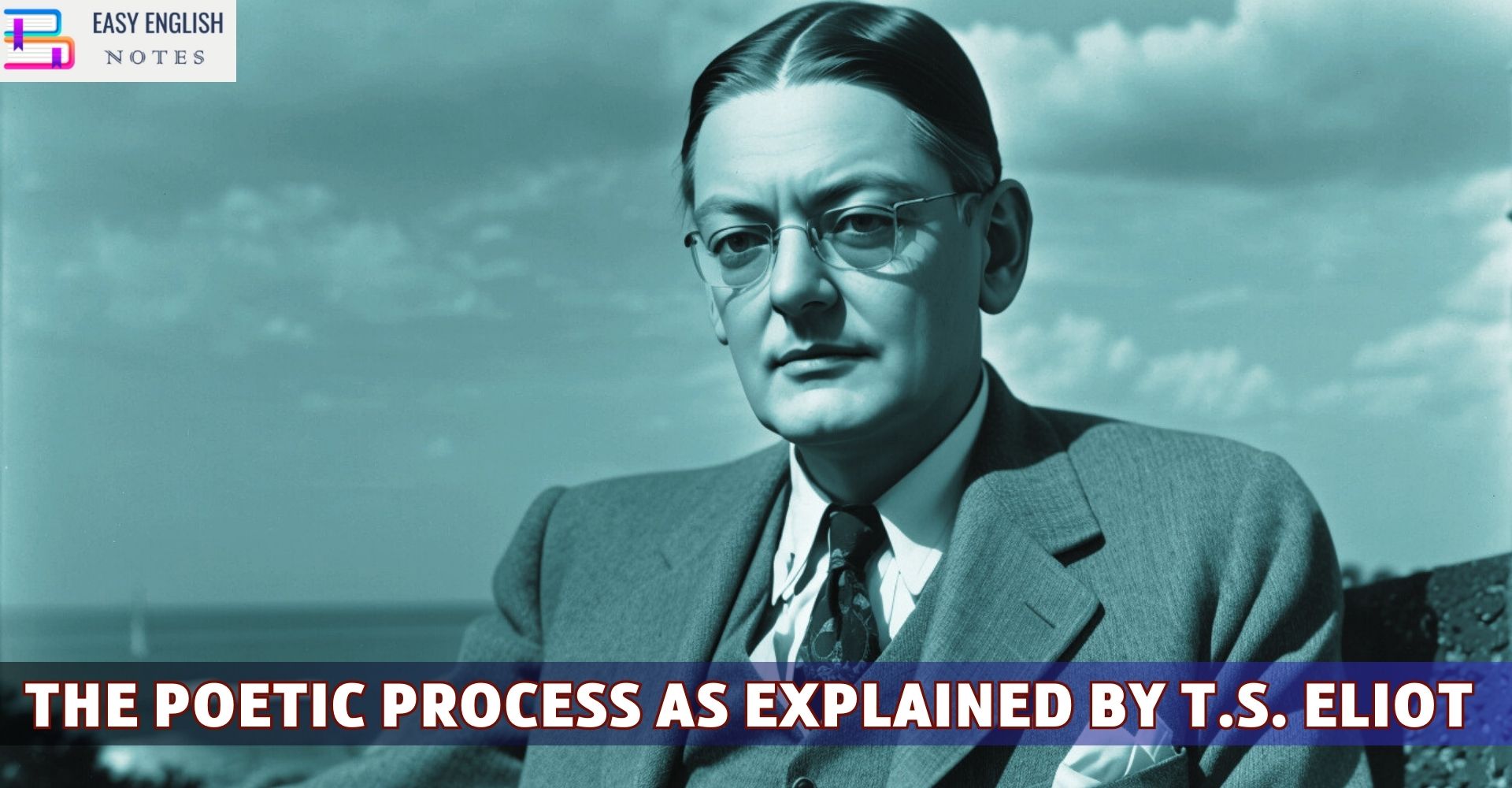T.S. Eliot in his seminal essay Tradition and The individual Talent’ points out that every imaginative artist should submit his individual talent to the best of tradition. “No poet, no artist has his meaning alone. His significance, his appreciation is the appreciation of his relation to dead poets and artists.
It was T.S. Eliot who brought the matter of impersonality squarely to the attention of his generation. In Tradition and the Individual Talent (1919), Eliot started his position with almost shocking emphasis.
The poet has, not personality to express, but a particular medium, which is only a medium, and not a personality, in which impressions and experiences combine in peculiar and unexpected ways. Impressions and experiences which are important for the man may take no place in the poem, and then which become important in the poetry may play quite a negligible part in the men: the personality.” Such impersonal conception of art is almost aggressively ‘anti-romantic’. Eliot is critical of William Wordsworth’s theory of poetry as originating from “emotions recollected in tranquility” To William Wordsworth, poetry is the spontaneous overflow of powerful feeling. While the romantic theory of poetry is essentially lyrical and subjective. Eliot’s theory of poetry has a classical bias. Eliot’s concept of poetry focuses attention not upon the poet but upon the poetry. If this emphasizes the art object as such. It represents a return to something like Aristotle’s theory. No other critic since the seventeenth century had turned to something like Aristotelian theory of poetry.
To Eliot. “The poet’s mind is in fact a receptacle for seizing and storing up numberless feelings, phrases, images, which remain there until all the particles which can unite to form a new compound are present together.” T.S. Eliot takes an analogy from the science of chemistry to buttress his point. He goes on to compare the mind of the poet to a catalyst. The mind of the poet is like the shred of platinum. Just as the two gases- oxygen and hydrogen in the formula H.O combine to form water. so an account of the operation of the catalytic agent of the poet’s mind, all the innumerable and countless feelings and emotions are combine to form the experience of poetry.
A great poet, according to T.S. Eliot, always strives to transmute his personal experiences into something universally valid. The poet and the mass are two different beings altogether the former alchemizes the purely personal experience of the latter into an artefact of beauty and order. Hence Eliot conclude “Poetry is not a turning loose of emotion but an escape from emotion, it is not the expression of personality, but an escape from personality.” The emotion of art is impersonal.
Also Read :
- Compare Hamlet with Macbeth, Othello and other Tragedies
- “The Pardoner’s Tale” is the finest tale of Chaucer
- Prologue to Canterbury Tales – (Short Ques & Ans)
- Confessional Poetry – Definition & meaning
- Line By Line Explanation Of The Poem The Eve of St. Agnes
T.S. Eliot, one of the most influential poets and critics of the 20th century, had unique and profound insights into the nature of the poetic process. His thoughts on the creation of poetry, largely articulated through his essays and critical writings, offer a deep exploration into the complexities of poetic composition and the poet’s role in the artistic endeavor. This account will delve into Eliot’s perspective on the poetic process, highlighting his key ideas and their significance in understanding poetry.
Impersonality and the Poetic Process
- Discuss Eliot’s concept of the ‘impersonal’ nature of poetry, as outlined in his seminal essay, “Tradition and the Individual Talent.”
- Explore his argument that the poet’s mind is a catalyzing medium where experiences and emotions are transformed into something new and universal.
- Analyze his idea that personal emotions are not directly translated into poetry but are depersonalized through this artistic process.
Tradition and Historical Sense
- Examine Eliot’s notion of ‘tradition’ and the ‘historical sense’ essential for a poet.
- Explain how Eliot believed that a good poet must be aware of the entire literary tradition before them and must understand their work as part of this continuum.
- Discuss how this perspective challenges the idea of poetry as a purely spontaneous or isolated creation.
The Objective Correlative
- Elaborate on Eliot’s concept of the ‘objective correlative,’ a theory central to his understanding of effective poetry.
- Explain how, according to Eliot, the poet’s job is to find a set of objects, a situation, or a chain of events which will effectively ‘correlate’ the intended emotion, making the emotion tangible and comprehensible to the reader.
Language and Precision
- Discuss Eliot’s emphasis on precision in language and the use of the ‘objective correlative’ in achieving this.
- Analyze his critique of poets who rely excessively on personal expression without crafting a precise emotional experience for the reader.
The Fusion of Thought and Feeling
- Explore Eliot’s idea of the fusion of thought and feeling in the poetic process.
- Discuss how he sees poetry as an escape from emotion and personality, yet simultaneously a medium where thought and feeling merge seamlessly.
Eliot’s Influence on Poetic Process
- Conclude with an overview of how Eliot’s ideas have influenced the understanding and teaching of poetry.
- Reflect on the contemporary relevance of his theories in the context of modern poetic practices.
T.S. Eliot’s articulation of the poetic process offers a window into the complex mechanics of poetic creation. His ideas challenge simplistic notions of poetry as mere emotional expression, suggesting instead a sophisticated interplay of personal experience, tradition, and linguistic precision. Eliot’s insights continue to influence poets and scholars alike, cementing his status as a pivotal figure in the landscape of modern literature.
PLEASE HELP ME TO REACH 1000 SUBSCRIBER ON MY COOKING YT CHANNEL (CLICK HERE)











